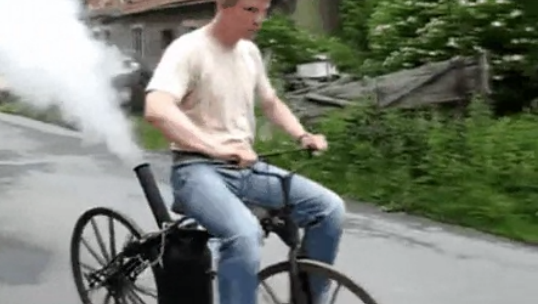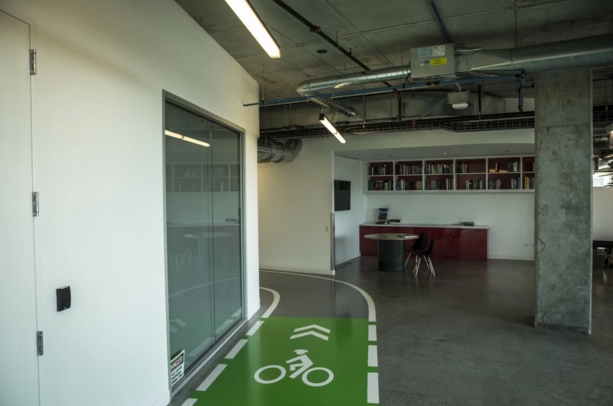

Home » More Concerns About Mechanical Doping: Weekly Round-Up #46!

This week’s round-up features mechanical doping, a map of the UK’s cycling clubs, a company encouraging cycle commuting correctly, World Bicycle Day, and some incredible cycling achievements in Taipei.
The top image is from a Reddit post poking fun at recent concerns about the prevalence of mechanical doping in competitive cycling (something we touched on in round-up #44). As well as serious discussion about the detectability of real mechanical doping devices – e.g. hidden motors – the thread contains a pun that perfectly summarises the issue:
This leads us to the first story of this week’s round-up, that Femke van den Driessche, the 19 year old who was caught with a motor in her bike at the world cyclo-cross championships in January (see round-up #39), has opted not to defend herself at her UCI disciplinary hearing.
This will likely result in a hefty punishment alongside her retirement from cyclo-cross, probably in the form of a fine. The debacle has also raised the level of suspicion about mechanical doping (or ‘cheating’, depending which term you prefer) in competitive cycling events.
You can see video footage of her assisted acceleration below:
Sportive Breaks have put together a cracking resource for cyclists in the UK, in the form of a map that links to over 1,200 Sportive-friendly cycling clubs. Each of the blue dots is a club so it’s easy to find one that’s local to you.

It’s a snazzy little map – very handy for finding a new group if you’re looking for one, and very inspiring to see just how many there actually are all across the UK (especially in some of the more rural regions).
There are plenty of reasons people might not want to cycle to work. Being sweaty when you get there is grim, struggling to lock your bike to the paltry amount of bike racks, it usually just feels easier to drive.
SRAM, a company in Chicago, is making all the steps in the right direction to make cycling a more attractive commute than driving: They have over 400 spaces for bikes, ample space for their 150 employees. Car parking spaces must be rented, meaning there’s a financial incentive to cycle asw ell. Locker rooms and showers are offered so people can change and wash before getting to work.

It raises some interesting questions about what obligations employers should have to incentivise cycling as a means of commute, especially as pollution and global warming become more important issues. It’s taken as a given that offices should feature car parking spaces, for example, but they much less frequently provide secure spaces for cyclists.
A nice story in the ECF news this week – the World Cycling Alliance (WCA) is going to campaign for the creation of a World Bicycle Day, in commemoration of the bicycle’s contributions to UN Global Goals (improving health, reducing greenhouse emissions, etc).
For now that’s all the news there is on the story, but we’ll keep our eyes peeled – it would be a great achievement for cycling!
 A possible logo for World Bicycle Day
A possible logo for World Bicycle DayThis week’s top story is from Taipei, Taiwan’s capital and a city that is making impressive progress on becoming more cycle-friendly. Over 7000 bikes are available to rent through the city’s bike rental system and, despite it nearly collapsing a few years ago, the scheme is now booming in popularity.
One of the most impressive features of Taipei’s cycling is the demographic: over half of the users of the bike rental scheme are female – impressive when compared to other systems: according to an article from 2014, women made up just 24.7 of riders in bike rental schemes in the US.
Other cool features help people choose bikes as their main method of transport. You can take them into public toilets, for example, meaning that you don’t have to lock up your bike and collect it afterwards. You can use the same card to rent a bike that you use for public transport – another effort to streamline the process and remove obstacles to people becoming engaged in cycling.
We hope that Anne Chung, Taipei’s transport commissioner, is correct when she says “We are making progress, if you come back in three years you’ll see a big change in Taipei”.
Full piece in the Guardian.


Leave a Reply